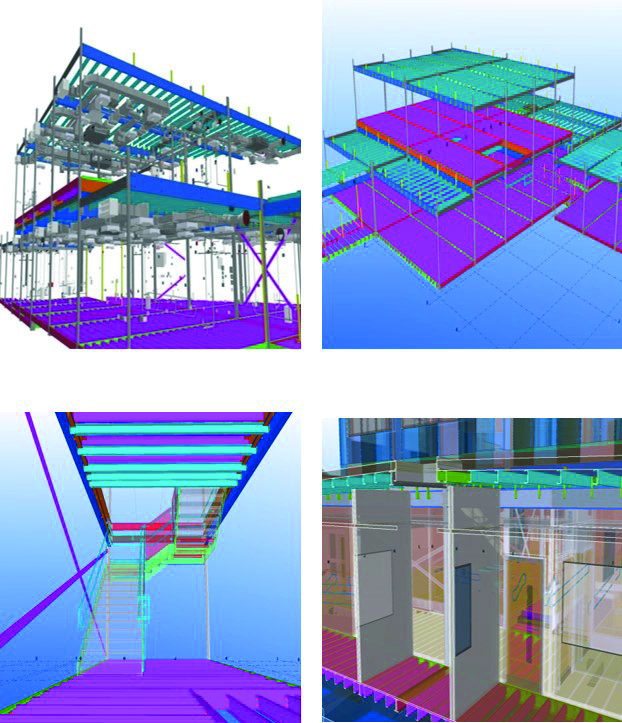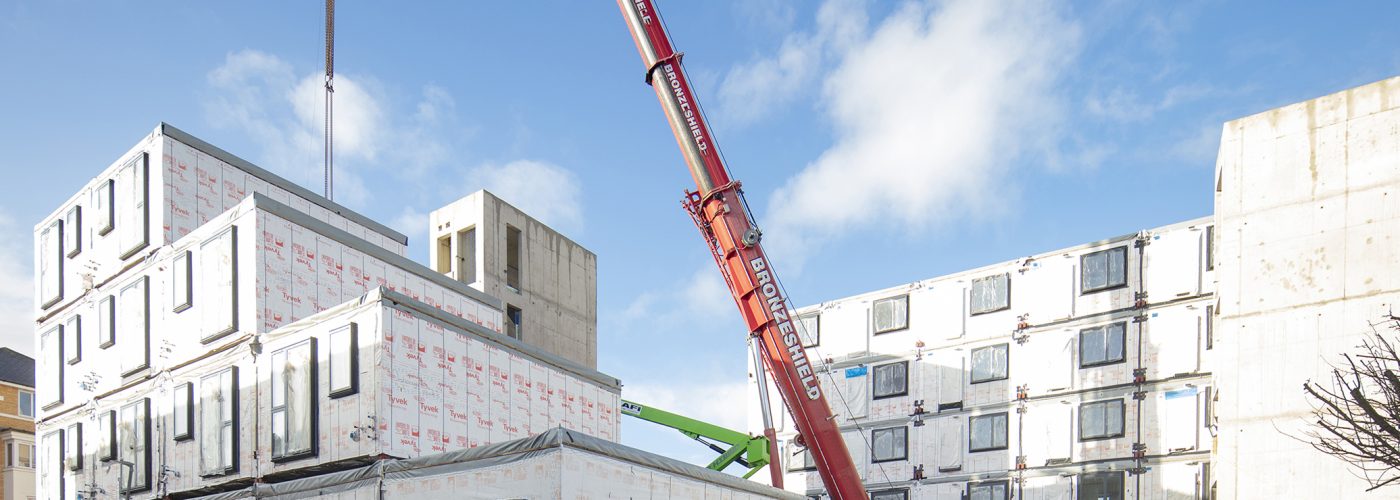The construction sector is facing multiple challenges – some historic such as low productivity, others more recent such as environmental impact and a lack of lifecycle information. But why is it imperative to think of the ‘end’ right at the design stages to enhance the sustainability value chain? Richard Hipkiss, Development Director of the Modular and Portable Building Association (MPBA) explains.
Progress has been slow but now with the advances in digital technology and new construction techniques such as design for deconstruction (DfD), design for reuse (DfR) and the one gaining most traction – design for manufacture and assembly (DfMA), we are finally making great strides in modernising the construction industry. These three disciplines can be difficult to implement in site based approaches however the stringent management and digital protocols within volumetric modular design and manufacturing processes create the ideal environment to optimise their use.
The UK government has been promoting volumetric modular construction as a method that can improve productivity, but modular technology can help deliver sustainability gains throughout the entire construction value chain. At present the focus is concentrated on using volumetric technology to improve resource efficiency upstream at the design, manufacturing, and construction phases. This appears to be detached from the need to promote resource efficiency and productivity at the stages occurring downstream – disassembly and end-of-life management. Such divergence could hamper the construction industry’s efforts to reduce its long term environmental and economic impacts and points to the need of an integrated, holistic approach to improving the sustainability value chain as an end-to-end concept.
What are the benefits throughout the entire construction value chain?
Volumetric modular construction does indeed offer multiple benefits upstream, including ease of constructability, increasing quality and reducing time of construction as well as the capacity to cope with skilled labour shortages and creating much safer working environments. Most importantly, it can substantially reduce construction waste generated onsite via promoting resource efficiency at the manufacture and installation stages. But the efficacy of this construction method to yield benefits downstream at the end-of-life has received comparatively little attention.
Advances made in the UK towards improving productivity in the construction sector via the application of volumetric modular technology and digitalisation are well documented, however as the trade body for the sector, the MPBA also needs to shine a light on the opportunity to improve sustainability performance throughout the value chain from concept to end-of life.
Design for manufacture and assembly, design for deconstruction and design for reuse protocols are an exemplary way of connecting upstream and downstream construction stages and can be used as a means to actively apply sustainability principles. The digitally enabled volumetric construction model has the potential to capture and record this valuable lifecycle data.
The rise of digital technology offers an opportunity to bring business transformation in the construction sector and promote a new way of doing things; effectively enabling transformative change which will enhance the sustainability credentials of volumetric manufactured buildings.
Implementing smart modular regimes to mitigate the impact of climate change
As the construction sector develops and adapts to meet changing government strategies to enhance sustainability credentials, I firmly believe the upward trajectory of volumetric modular buildings will continue and we need to act now to help mitigate the impact of climate change.
A smart volumetric modular construction regime can operationalise the collection and storage of components’ lifecycle information, and help the sector build the capabilities needed to support the maintenance, recovery and reuse of modular components, and reduction of waste. For this to take precedence it is imperative to think of the ‘end’ right at the beginning of the design stage and foster improved collaboration between all construction partners involved in the supply chain.
MPBA
The Modular and Portable Building Association plays a key role in supporting all sections of the industry. Leading best practice principles and specialist training schemes, the association is represented on many committees for the benefit of members. Most importantly, the MPBA ensure evolving government policies and decisions are not made on behalf of the construction industry without due consideration for the impact they may have on the volumetric modular sector. Founded in 1938, with an in-depth understanding of the industry, the MPBA has represented this advanced and highly innovative sector for over 80 years.

Building, Design & Construction Magazine | The Choice of Industry Professionals





